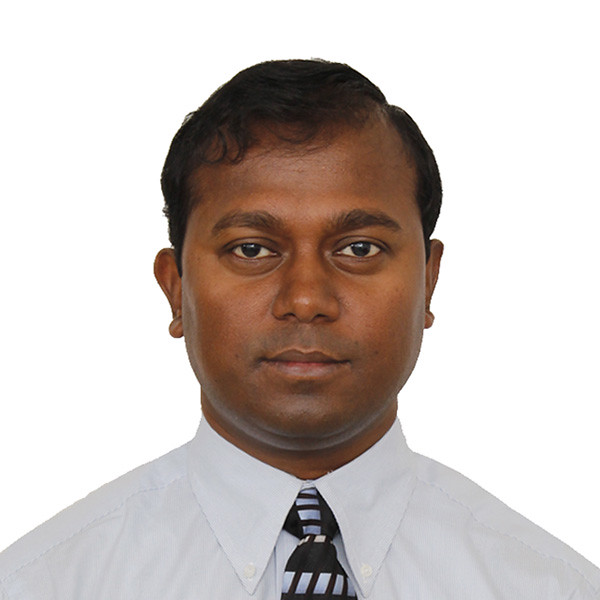RISING voices: Apurba Shee, regional monitoring and evaluation coordinator (IFPRI)
In this interview, Apurba Shee, economist at the International Food Policy Research Institute (IFPRI) and regional M&E coordinator in the Africa RISING program, introduces himself and his work with the program. It is one of a series of portraits of key people in Africa RISING.

Tell us about your background
I am an associate research fellow in the environment and production technology division of IFPRI based in Arusha, Tanzania. I work as a monitoring and evaluation specialist for Africa RISING projects in Ethiopia, Ghana, Malawi, Mali, Tanzania and Zambia.
My educational background is economics, applied to agricultural development. I studied at Penn State and Cornell universities. My motivation for economics and agricultural development came from my five years’ professional experience in promoting microfinance and livelihoods in India. I directly implemented various livelihood programs in eastern India, which created income and employment for vulnerable communities and women by providing access to credit, promoting sustainable agriculture and capacity development.
Later, I worked with the International Livestock Research Institute (ILRI) for three years, as an agricultural economist, on the design and scale up of the Index-Based Livestock Insurance (IBLI) program for pastoral communities in northern Kenya and southern Ethiopia.
What do you do in your current position?
I coordinate monitoring and evaluation activities in Africa RISING, train and support colleagues on reporting project indicators via an online PMMT web platform, and manage project level survey and trial data. I am also involved in impact evaluation of agricultural technologies using household-level surveys including quasi-experimental methods. My current research includes assessing agricultural technology adoption, its impact on household welfare and nutritional outcomes, measuring farmers’ willingness to pay or desired demand for improved seed and fertilizer, and how the desired demand translates into technology adoption.
Presently, I am conducting a follow up household survey in Tanzania to facilitate the mentioned research objectives. I’ve developed various questionnaires to analyze farmers’ demand as well as constraints and factors of technology adoption. The survey will start at the end of July 2015. We have engaged the services of a Tanzanian survey firm and I am working closely with them to conduct a survey of 400 households in Babati District. Africa RISING is somewhat lacking the research orientation towards farmers’ demands and I hope to carry out a demand and policy analysis as soon as the data is collected.
What, do you think, are the biggest challenges in Africa RISING and how do we deal with them?
Multidisciplinarity brings its challenges. Researchers from different disciplines and various CGIAR centres work together in the program and there are differences in viewpoints and methods for technology implementation and evaluation. Overall evaluation of projects with system-based technologies is a challenge including in areas such as selection of project participants. Usually participants are not selected randomly in the project. Systematic difference between the participants and non-participants can create identification issues which pose a challenge in socioeconomic evaluation of the program. We are trying quasi-experimental and rigorous econometric techniques to evaluate impacts without a bias.
Also, Africa RISING promotes various technologies; at the moment about 100 across the project. One of the challenges is in choosing the technologies that are ‘most promising’ for scaling up. The project is trying various cost-benefit and sensitivity analysis for assessing the most promising technologies.
Finally the evaluation was not designed before the project started. In an ideal case an evaluation survey should start at the very beginning, with the theory of change and logical framework.
What are some of the main achievements of this program?
What is unique here is that you can think globally and apply locally. All the research we are doing is very sound and innovative. And we have the opportunity to implement and see the results. We have a chance to ask farmers directly about their opinions and attitudes toward specific technologies. This is what is unique about Africa RISING.
We have completed data collection and initial analysis for Africa RISING baseline evaluation surveys for the five countries we work in. This analysis shows there is significant impacts even though there are challenges with targeting on interventions. We will have to seek to confirm these results with an end line survey.
The East and Southern Africa review and planning meeting 2014-15 showed that project activities have a benefit-cost ratio of 1.5+ which is great! Finally, Africa RISING is successfully working with many scientists with various backgrounds.
What gives you hope looking at a possible second phase of the program?
I’m very hopeful for a second phase. The first phase has had a lot of success stories including successful implementation of different yield-enhancing technologies and finding out that several of them can be scaled up.
From a systems and environment standpoint, the program is also doing very well in terms of controlling soil erosion, promoting cereal and legume intercropping, and crop and livestock integration.
Africa RISING has all the dimensions that a sustainable intensification program should have and that is a plus for a possible second phase.
For the second phase it would be better if we set up various evaluation designs at the beginning with a detailed logical framework and theory of change.
Working with Africa RISING has been a great learning experience and I appreciate it. Next week I’ll be sharing findings from the baseline survey with farmers in Malawi and I am really looking forward to it.




